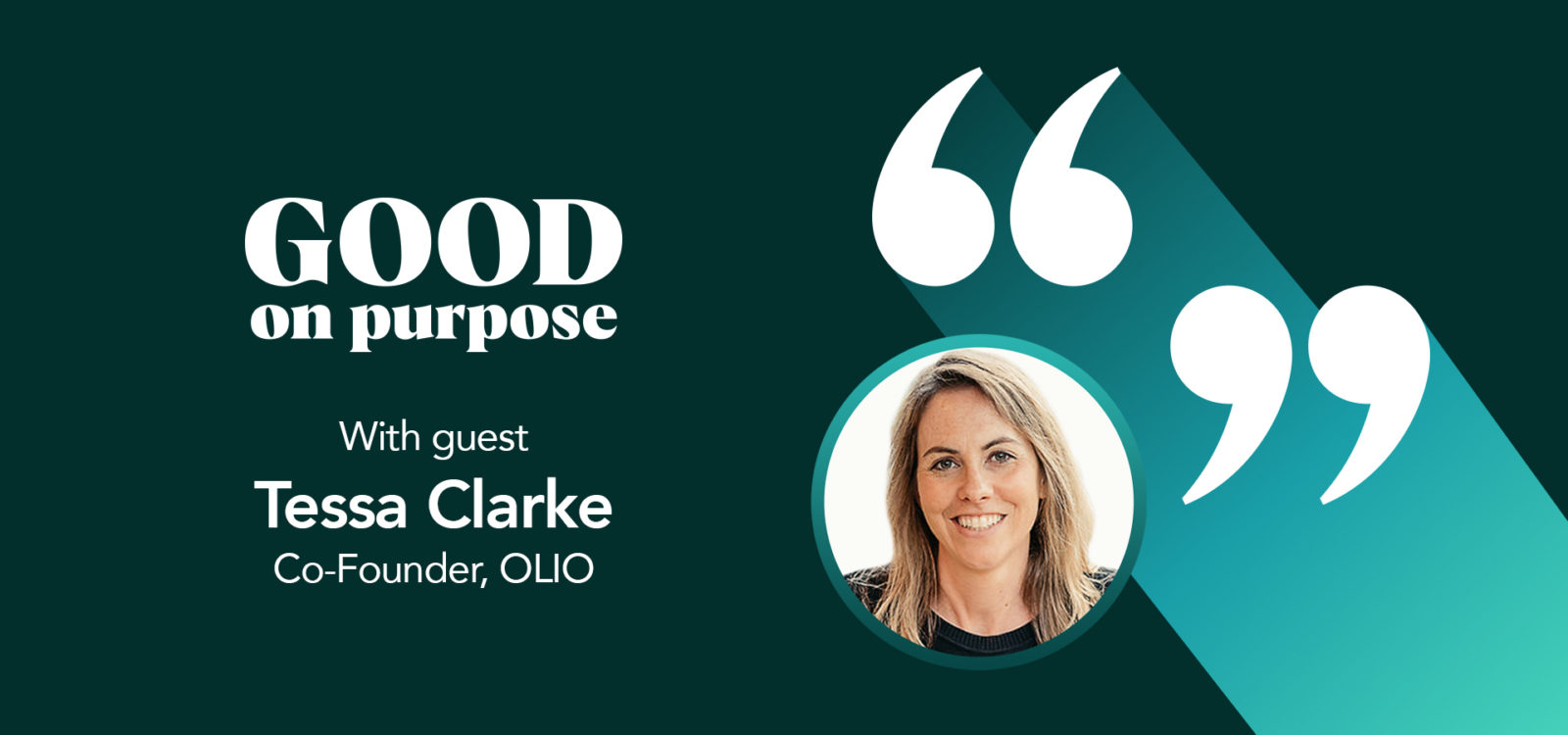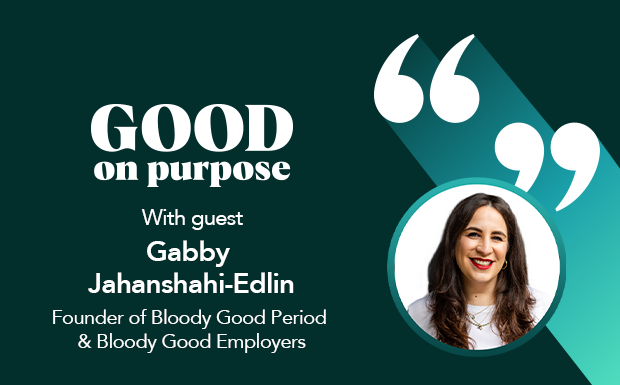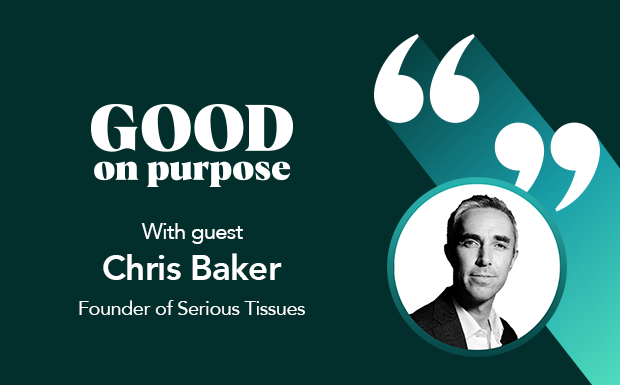
Tessa Clarke on: Tackling the food waste problem
This episode features Tessa Clarke, entrepreneur and co-founder of the food sharing app, OLIO. She speaks to Nilesha about how her passions for sustainability, the circular economy and zero waste led her to co-found OLIO; and the impact of growing it to an app with 5 million users. Tessa also speaks about the need and urgency for businesses to combine profit with purpose.
Every fortnight on the GOOD on Purpose podcast, people who have made a conscious decision to lead a life with Purpose share their inspirations, motivations and life advice. Here, Tessa Clarke, co-founder of food sharing app OLIO, shares hers…
Motivated to act by the scale of the food-waste problem
We were really surprised at how much food waste took place in the home and how little took place at a retail store level. The typical British household throws away over 20% of their weekly shop; that’s worth over £700 per family, per year, collectively adding up to £14 billion.
…once you’ve had your eyes open to food waste, it’s everywhere. Everywhere you turn, you suddenly start seeing it. So [my co-founder] Saasha and I were then extremely galvanised to solve this problem. We’ve both got young kids, and so we’re really, really mindful of the future world that they’re inheriting.
The impact of reducing food-waste
Something that we discovered, was a piece of work called Project Drawdown, which is by the world’s leading climate change scientists. And they said, “Enough of the doom and gloom about the climate crisis, let’s stack rank the top 100 solutions”. And actually, in position number one, they ranked reducing food waste, and that came above solar power above electric cars and above a plant-based diet.
Changing the World through small gestures
Can we save the world by doing this stuff? Yes, we can. Honestly, yes, we can. If we can get millions and hundreds of millions and billions of people all just taking their small actions, that is how we have absolutely transformational impact.
Becoming an entrepreneur of a purposeful tech start-up
It is retrospectively obvious to me that I would have become an entrepreneur. But I’m really quite frustrated about the fact that it took me so long to figure that out. And a big part of the reason why it took me so long to figure that out, is because the concept of entrepreneurship did not feel like it was for someone like me.
…everything that you read about in the media about the [tech entrepreneur] role models, is these kinds of young tech bros who dropped out of college and eat ramen noodles and wear hoodies. They’re just the voices of entrepreneurship. And now I can’t believe I went to Stanford Business School and studied for my MBA, I was in the heart of Silicon Valley. And yet, I didn’t attend a single entrepreneurship class because I just did not think that was for me. There was just this kind of aura of mystique around. It just felt like a club where I was not welcome and would not fit in.
The future of purposeful business
I would like to think that sort of the model that OLIO has is the future business paradigm, ie it’s one that combines profit with purpose. To me, it just is absolutely crazy that it is seen as acceptable right now for a business to generate enormous shareholder returns and enormous amounts of profits, and yet in parallel, be destroying communities and destroying the planet.
And I really do think that’s a very short-termist approach to business. And I also get quite frustrated because we do live in this weird dichotomy at the moment where people think that if you’re doing good, you must be a charity. And if you’re growing really fast and rapidly, then you will be a business, but you are probably having all sorts of negative effects on the world.
And we think that this sort of dichotomous approach is really shortchanging humanity. And actually, what we need is that third way, which is profit with purpose. And we very deliberately set OLIO up as a business, not as a charity, because we knew that we need to have impact at scale, yesterday. And we couldn’t point to a single charity that had scaled at the pace of the tech startups.
A mission-driven business
So for us, it was very natural that OLIO should be a business, but one that has its mission at its core.
And we’re asked the whole time, how do we reconcile profit with purpose? And I’ve reflected on that a lot. And the best answer I’ve come up with is an analogy; 10/20 years ago, people would be asking business leaders, how do you reconcile treating your employees well, and being a profitable business? And we’ve moved on beyond that debate and dialogue now, right? We know, if you want to be a successful, profitable business, then you need to invest in your people. And that creates a virtuous circle. And I believe absolutely the same will be the case with profit with purpose.


